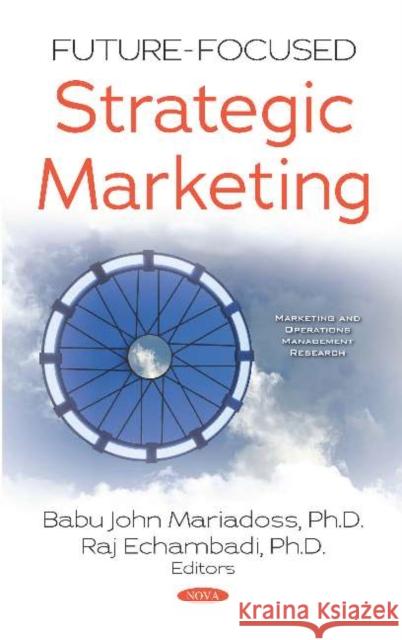Future-Focused Strategic Marketing » książka
Future-Focused Strategic Marketing
ISBN-13: 9781536161663
The business world is changing rapidly, requiring organizations to be more competitive and customer-centric. Applied technologies have provided opportunities for nascent startups to disrupt established business models that hadnt fundamentally changed for decades. Technologies now enable work to be separated from time and space. Technologies have also made certain occupations obsolete while creating new ones. In this changing landscape marked by hyper-competition, firms are looking for new ways to operate and manage their strategies in order to remain extremely agile, nimble, and customer-centric. Inherently, strategic marketing fuses theoretical rigor with relevance to the real world. Marketing strategies informed through insights based on quality academic research help firms develop relevant organization-wide initiatives for both enhanced value creation and subsequent value capture thereby providing bottom-line impact. The goal of Future-Focused Strategic Marketing is to bring together academic and practitioner audiences in order to highlight key strategic choices for firms operating in the changed landscape. So the focus is not only on the specific marketing activities performed by the firm utilizing their capabilities, but also relevant organizational adjustments and shifts that need to be performed in order to ensure success of firm strategies in a wide variety of contexts. Future-Focused Strategic Marketing is positioned as an introductory use-inspired primer in Strategic Marketing for a variety of audiences. We intend this book to stimulate novel ideas in marketing strategy scholars including doctoral students to help create cutting-edge research agendas that help shape both firm strategies and public policies. Marketing practitioners will find the relevance of the book appealing as it helps firms to both execute and sustain value in the longer-term. This focus on rigorous and relevant research has inspired the themes for the various book chapters including (i) transforming the organization, (ii) examining structure, culture, and identity issues, and (iii) specifying the relationship between capabilities and performance.











